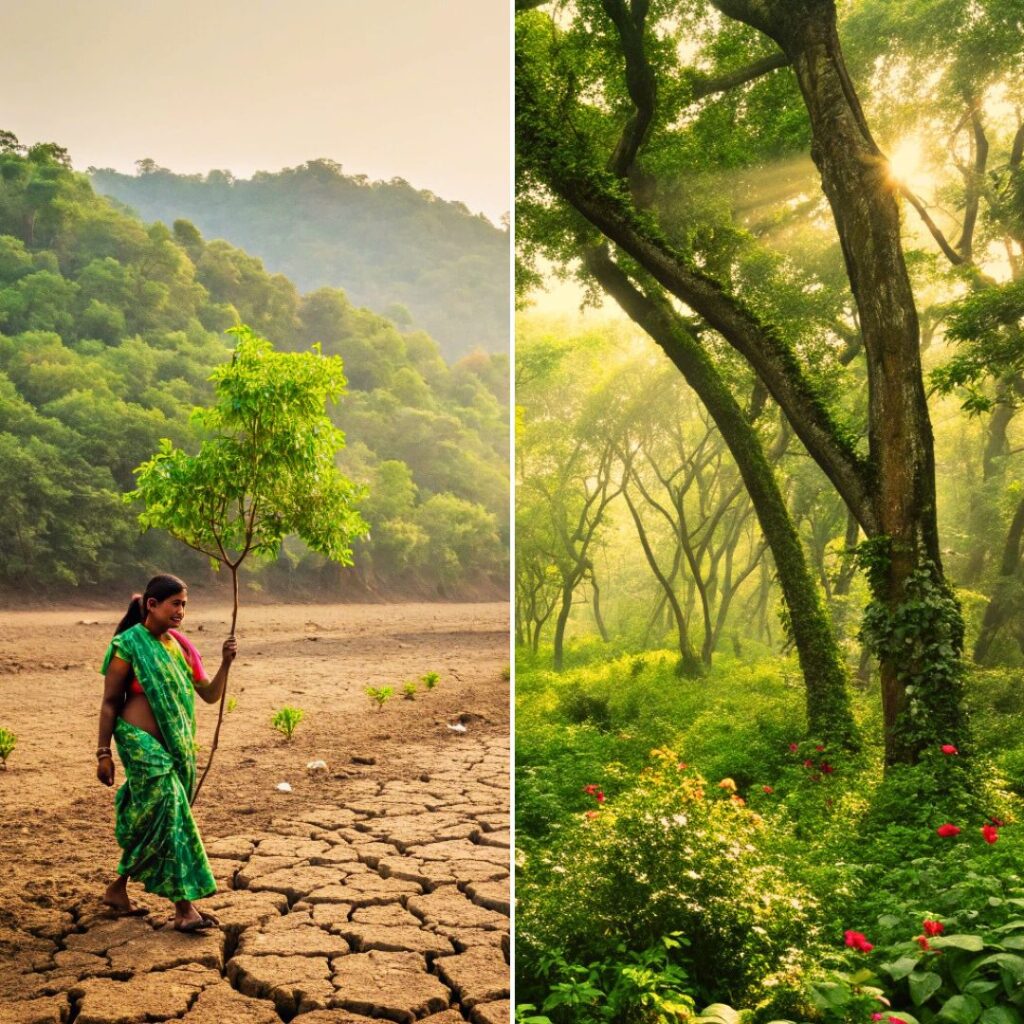Rajasthan is an Indian state which faces acute water crisis – a fact not unknown to the people of this country.
Alwar is one such district of Rajasthan that has remained parched for years on end.
However, villages in the district have achieved a commendable feat by becoming water-sufficient; beating the scorching summers of India.
Background
Two years ago, the villages of Alwar were dependent on trickling government water supply and tankers to quench the thirst of its residents and livestock.
In 2016, a water conservation scheme under the name Mukhyamantri Jal Swavalamban Abhiyan (MJSA) was launched. Since its inception, 7,740 villages have been relieved of the water crisis and 2.3 lakh projects have been completed, including restoration of ‘baolis’ – historic step-wells.
The Logical Indian had the opportunity of talking to Hiralal Singh, Superintending Engineer of Rajasthan Watershed Department, who told us about the several water harvesting success stories in Alwar, Rajasthan.
Building Johad in the village Bombada
Bombada had secured Rs 7.37 lakh from the Mahatma Gandhi National Rural Employment Guarantee Act (MNREGA) through the Mukhyamantri Jal Swavalamban Abhiyan (MJSA) to develop a johad (a rainwater storage tank principally used in the state of Haryana and Rajasthan, India, that collects and stores water throughout the year, to be used for the purpose of drinking by humans and cattle) in the village.
Bombada village before the johad was built
This johad was created with the fervent efforts of the Sarpanch of the village who took the matter into his own hands and made sure that the water conservation scheme saw the light of the day.
It helped in providing water for 10-12 tube wells in that area and was also the reason for a nearby cowshed nearby to gain access to water for more than 100 cows.
The water harvested in the johad has also been helpful for the villagers for crop cultivation, thus increasing their income.
Anicut in village Lekhdi (Bansur)
The village Lekhdi under the Panchayat Samiti, Bansur has constructed an anicut (a dam or mole made in the course of a stream for the purpose of regulating the flow of a system of irrigation) under MJSA. The allocated money for the project was Rs. 4.79 lakh.
An image of the anicut before rains in Lekhri
Prior to the construction of the anicut, almost 100 hectares of the land was going unirrigated. The watershed management helped the villagers cope up with the plaguing water crisis and make cultivation possible once again.
An image of the water collected by the anicut after rains in Lekhr Johad in Kolila Joga village
A small village of 1500 people, Kolila Joga was under acute water crisis until the water harvesting project extended its hand provide to help.
The Nimrana Panchayat Samiti had taken up the task under MJSA to build a johad in the area. It was an embankment of 26- hectare water catchment area with a capacity of 7,630 cubic metres.
The construction of the johad solved the drinking water and irrigation problem in the village and has also made the lives of cattle and domestic animals easier.
Before rains in Kolila After rains in Kolila Mini percolation tank in Daulatpura
With the help of MJSA, Daulatpura village of the Rajgarh Panchayat Samit constructed a mini percolation tank.
The scheme had allocated Rs. 2.29 lakh and the Panchayat Samiti Pradhan had donated Rs. 0.23 lakhs for the completion of the project.
The construction of the percolation tank solved the problem of irrigation in the area, with a considerable increase in the available drinking water as well.
The mini percolation tank
The construction of a similar percolation tank in the village of Raini is also part of the success story of Alwar district, Rajasthan.
The Logical Indian community appreciates the efforts of the Mukhyamantri Jal Swavalamban Abhiyan and the concerned authorities involved in making the water-sufficiency projects a success. At a time when several parts of India is facing water crisis and the entire world is moving towards sustainable development, such efforts are surely praiseworthy.











